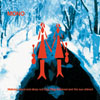 In describing the sound of Mono's third full-length album it's hard not to invoke a number of bands whom I have nevertheless sworn to eschew in the body of this review. Let it suffice to say that the music is sweeping, anthemic, instrumental, crescendo-heavy, at once deliberately delicate and mindlessly reckless; this much should give you some idea of the musical path on which Mono tread (some might even call it a new path to Helicon, to tell the truth).
In describing the sound of Mono's third full-length album it's hard not to invoke a number of bands whom I have nevertheless sworn to eschew in the body of this review. Let it suffice to say that the music is sweeping, anthemic, instrumental, crescendo-heavy, at once deliberately delicate and mindlessly reckless; this much should give you some idea of the musical path on which Mono tread (some might even call it a new path to Helicon, to tell the truth).
Despite the surface similarities to a cadre of aphonic groups, Mono have a hook all of their own. They bring to light a very palpable and very realized "music of anxiety" (not to be confused with the anxiety of music, which you might ascribe to John Cage, first and foremost). This music of anxiety masquerades as songs which you might feel comfortable introducing to your parents, who enjoy all of the refinements of classical. In other words, the songs are lovely and accessible. But certain songs are filled with massive building themes and bridges, each one successively getting louder or faster or both. It is in these precise parts where the anxiety lurks. To illustrate, I offer a challenge: try and fall asleep to "Lost Snow," or "16.12," both of which start off innocently enough, lulling any quasi-narcolept into a comfort blanket of promised sleep and placidity. But then the songs evolve. They burst forth. They blossom violently like a flower which does not merely let its petals spread out gently, but rather one which erupts and explodes, sending thick clouds of pollen into the air and leaving its pistils and stamens shaking in the aftershock. Mono's style can be clawingly unsettling, full of nervous energy and discomfort. It does not allow you to sit and standby; instead it sucks you into the whirlwind. Yet there is always an outlook to the light at the end of the song, after the guitars collide and distort, where the sonic storm yields to space and eventually catharsis. The formula (polarization of a song's harshness and quietude) is not new, but Mono executes it as elegantly as any band whose skinny fists stir up such tempests of sounds which assail the ears for ten minutes at a time. Not every song proceeds along these lines. "A Thousand Paper Cranes" and "2 Candles, 1 Wish" stay hushed, concentrated, and focused throughout. The sequencing on the album seems to indicate that Mono is well aware of the anxiety of their songs. The band acknowledges the need for rest between the storms of their mightier songs and they acquiesce by putting the softer bits between the harder ones. In this way, the spaces between the songs mimic the spaces within them.
samples:
Read More

